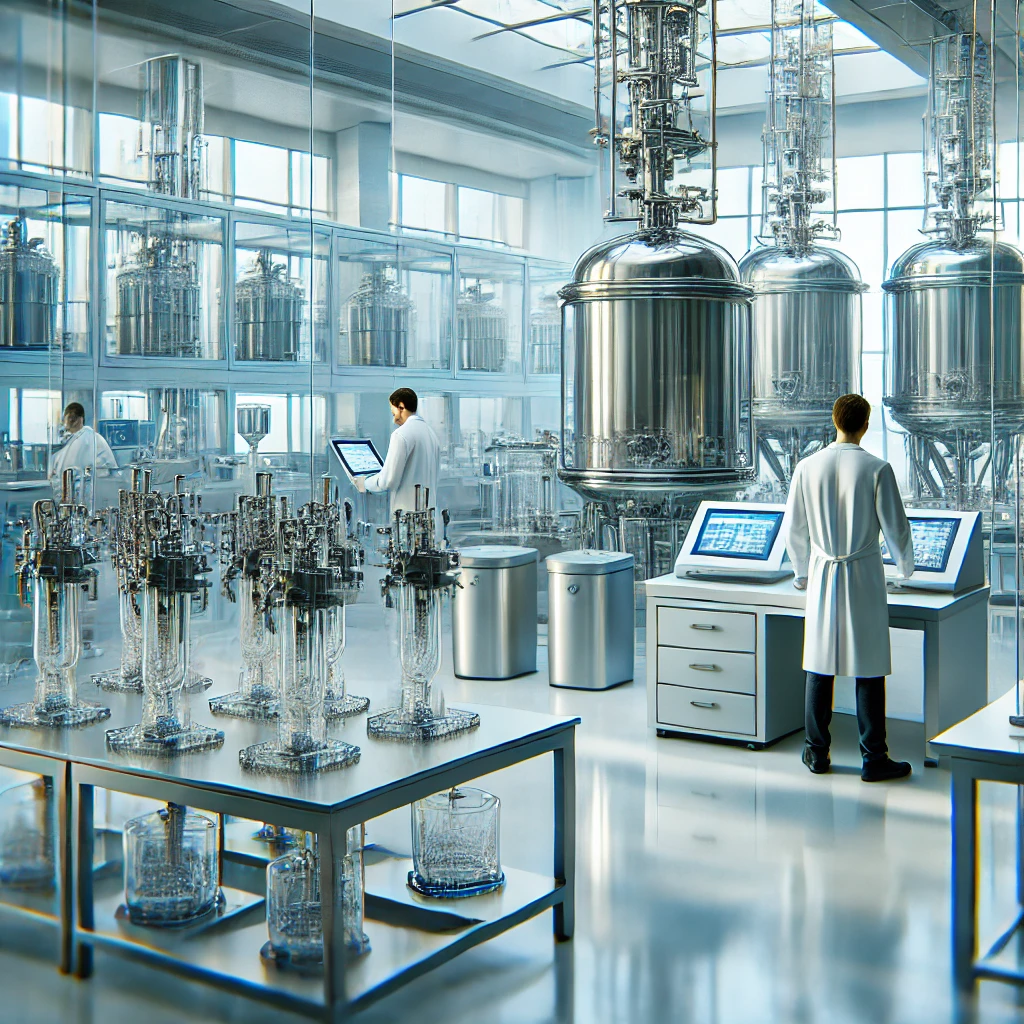Introduction
Precision fermentation is revolutionizing the way we produce food, offering a sustainable and efficient alternative to traditional agricultural practices. This innovative technology leverages microbial fermentation to produce specific proteins, enzymes, and other complex molecules essential for creating alternative proteins and other food products. As the demand for sustainable food solutions continues to grow, precision fermentation stands at the forefront of this transformative shift.
What is Precision Fermentation?
Precision fermentation is a cutting-edge biotechnological process that uses microorganisms, such as bacteria, yeast, or fungi, to produce specific proteins and other molecules. Unlike traditional fermentation, which relies on natural microbial activity to transform substrates into desired products, precision fermentation involves the genetic engineering of microbes to optimize their production capabilities.
How Precision Fermentation Works
- Genetic Engineering: Scientists identify the gene responsible for producing the desired protein or molecule and insert it into a microbial host.
- Fermentation Process: The genetically modified microbes are cultured in large fermentation tanks, where they multiply and produce the target molecule.
- Harvesting and Purification: The desired product is extracted from the fermentation broth and purified for use in food production.
Advantages of Precision Fermentation
Sustainability
Precision fermentation significantly reduces the environmental impact of food production. Traditional animal agriculture is resource-intensive, requiring large amounts of land, water, and feed, and is a major contributor to greenhouse gas emissions. In contrast, precision fermentation uses fewer resources and generates lower emissions, making it a more sustainable option.
Efficiency
Precision fermentation allows for the production of high-quality proteins and other molecules with greater efficiency and consistency compared to traditional methods. This process can produce large quantities of target molecules in a shorter time frame, reducing the reliance on seasonal agricultural cycles.
Customization
Precision fermentation offers unparalleled flexibility in tailoring the production of specific proteins and other molecules. This customization enables the creation of novel food products with unique nutritional profiles and functional properties, catering to diverse dietary needs and preferences.
Applications of Precision Fermentation
Alternative Proteins
One of the most promising applications of precision fermentation is the production of alternative proteins. These proteins can be used to create plant-based meats, dairy substitutes, and other food products that mimic the taste, texture, and nutritional content of animal-derived products.
Plant-Based Meats
Precision fermentation enables the production of key proteins and flavor compounds that replicate the sensory experience of eating meat. Companies like Impossible Foods and Beyond Meat use precision fermentation to enhance the taste and texture of their plant-based products.
Dairy Alternatives
Precision fermentation is also being used to produce proteins found in milk, such as casein and whey, which are essential for creating realistic dairy substitutes. Products like cheese, yogurt, and ice cream made with precision fermentation-derived proteins offer similar taste and texture to their dairy counterparts without the need for animal farming.
Functional Ingredients
In addition to alternative proteins, precision fermentation can produce a wide range of functional ingredients, including enzymes, vitamins, and bioactive compounds. These ingredients can enhance the nutritional value, flavor, and shelf life of food products.
Enzymes
Enzymes produced through precision fermentation play a crucial role in food processing. For example, enzymes used in baking, brewing, and cheese-making can improve product quality and consistency.
Vitamins and Nutraceuticals
Precision fermentation can produce vitamins and other bioactive compounds that support health and wellness. These ingredients can be added to food products to boost their nutritional profile and provide additional health benefits.
Challenges and Future Directions
Scaling Up Production
One of the main challenges facing precision fermentation is scaling up production to meet the growing demand for sustainable food solutions. Developing large-scale fermentation facilities and optimizing production processes are essential for making precision fermentation economically viable.
Regulatory and Consumer Acceptance
As with any new technology, precision fermentation faces regulatory hurdles and consumer acceptance challenges. Ensuring the safety and efficacy of precision fermentation-derived products and educating consumers about their benefits are crucial steps in gaining widespread acceptance.
Technological Advancements
Ongoing research and development are driving advancements in precision fermentation technology. Improvements in genetic engineering, fermentation techniques, and downstream processing will enhance the efficiency and scalability of precision fermentation, opening up new possibilities for its application in food production.
Conclusion
Precision fermentation represents a paradigm shift in food production, offering a sustainable, efficient, and customizable alternative to traditional agricultural practices. By harnessing the power of microbial fermentation, we can create high-quality proteins and other essential molecules that meet the growing demand for sustainable and nutritious food solutions. As technology continues to advance, precision fermentation will play an increasingly important role in shaping the future of food.

